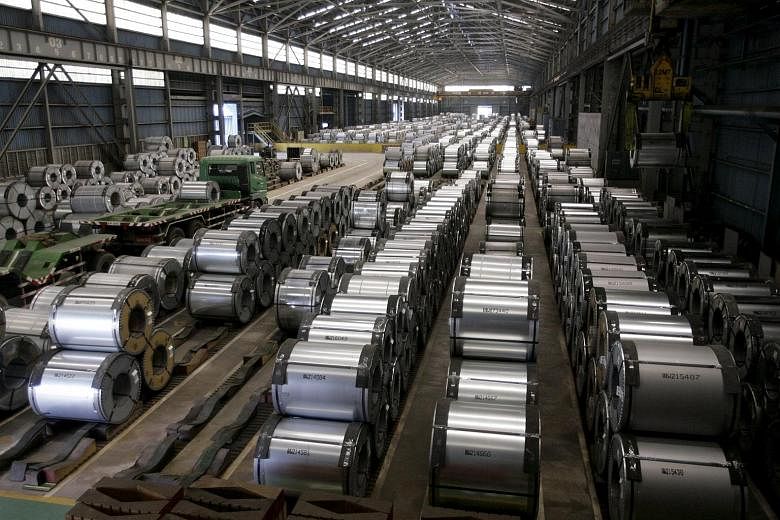BEIJING (BLOOMBERG) - Warnings are stacking up fast after China's rally in steel prices. Fitch Ratings said prices lifted in part by heightened speculation are destined to slump, while a bank in Singapore flagged the risk of a boom-bust cycle reminiscent of China's equity market.
The rapid advance this year isn't sustainable as mills are expected to bring idled capacity back online, raising steel production, Fitch said in a report on Monday (April 25). Price gains have been driven by a seasonal recovery in activity that's been exacerbated by increased speculation in the futures market, according to analyst Laura Zhai.
Steel prices have surged in 2016, with reinforcement-bar up 47 per cent, after policy makers in China talked up growth and added stimulus, helping to lift property prices and ignite a speculative frenzy. Oversea-Chinese Banking Corp warned on Monday that there may be parallels between the sudden jump in steel trading and last year's performance in equities, citing the potential for a boom-bust scenario.
"The rapid increase in Chinese steel prices so far this year is not sustainable, as it is largely due to a seasonal pick-up in construction and elevated speculation in the steel futures market," Fitch said. "With prices now surging, many of the suspended plants have resumed production."
Futures for rebar extended gains, rallying as much as 6.2 per cent to 2,781 yuan a metric ton on the Shanghai Futures Exchange, before trading 0.2 per cent higher on Monday. The price of the product used to strengthen concrete advanced for the 11th straight week through Friday, adding 14 per cent.
Steel output in the world's largest supplier may see a further increase this month as more furnaces are fired up, according to Fitch. Production in March rose 2.9 per cent to a record 70.65 million tons from a year earlier, according to figures from the National Bureau of Statistics.
To cool the spike in trading, the SHFE last week increased transaction fees, while the Dalian Commodity Exchange, which has an iron ore contract, raised margin requirements. The bourse in Dalian also tightened rules on what it called abnormal trading, which now includes frequent submission and withdrawal of orders and self-trading.

